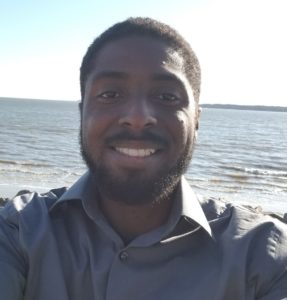Our field places a great emphasis on self-care for clinicians and their clients for good reason. People encounter numerous stressors throughout their daily lives yet many of us neglect to practice self-care in order to replenish, refuel, and refocus our mental energy. Building a private practice is not easy and it takes a lot of energy, dedication, and time just to get started.
Unfortunately, our practices are usually not our sole priority. Some of us are spouses, parents, caregivers, and much more. Most of us are already working and have responsibilities toward other jobs. A common strategy is for clinicians to work their job while building their respective practices to the point where they can leave the job and work for themselves full time.
I wrote that explanation to state that it takes a lot of energy to build a practice to the point where it is profitable. I listed multiple ways energy is being spent, but how are you creating energy for you to utilize and work on your goals? That is why self-care is always important. I suggest reading this post on the “Six Steps to Self-Care”. The Miracle Morning Routine as discussed on Practice of the Practice Podcast episode 347 focuses on how daily self-care rituals can increase productivity.
Time
Many people think spending time on a project, task or activity will yield to more positive outcomes. Generally, that idea is usually correct. It takes a lot of time and practice to become an expert, creates a good product, or perform exceptional service. The quality of time and energy you’re spending on something is another factor. I’ll use writing as an example. Let’s say I spent 3 hours working on writing articles while operating at 50% efficiency versus writing for 1 hour at 90% efficiency. More often than not I would say my writing would be of much higher quality in the latter scenario. I would probably write more too.
When I ran track
My high school coach (Herbert Johnson) would assign different workouts each day which could consist of multiple repetitions of runs. For this example, I was assigned to sprint 100 meters 10 times. I finished my 6th or 7th run and Coach Johnson told me I was done. I was instantly perplexed and asked him why he stopped me. Coach Johnson said I was finished because I was not maintaining proper form and sprinting mechanics during my runs. He emphasized the importance of completing quality runs and not focusing on the quantity. My practice for that day was over. I came across an anonymous quote years ago which stuck with me. I think it can be applied towards energy efficiency too. The quote is “If a task is once begun, never leave it ‘till it’s done. Be the labor great or small, do it well or not at all.”
Hopefully, those scenarios and the quote made sense. So how exactly do you use your energy so you can spend quality time and effort on future tasks while maintaining all your other responsibilities?
- One beneficial method is sprints. I’ve heard Joe Sanok frequently discuss the benefits of utilizing sprints. In this context, a sprint is considered a 20-minute period someone dedicates to fully work on a task/goal (which can be completed during the timeframe) with minimal distractions. Next Level Practice members have access to a pdf file detailing sprints further. I recommend looking at that if you’re a member.
- Another suggestion is to determine what you want to accomplish ahead of time. One of my friends loves to create checklists to see the small wins and remain focused. I’m not a fan of that; mostly due to laziness. However, my friend is more productive than me on most days. I’m personally going to do some reflection and try some methods I think work best for me. I’ll write about it when I find some methods that work for me.
 Michael Gilliard was born and raised in Charleston, SC. He a Licensed Professional Counselor (LPC) and Nationally Certified Counselor (NCC) in Georgia. He is in the final stages of planning his private practice named Ujima Counseling, Coaching, and Consulting. It is based off the Kwanzaa principle of Ujima (Collective Work and Responsibility) which means “to build and maintain our community together and to make our brother’s and sister’s problems, our problems and to solve them together.” He can be reached via LinkedIn.
Michael Gilliard was born and raised in Charleston, SC. He a Licensed Professional Counselor (LPC) and Nationally Certified Counselor (NCC) in Georgia. He is in the final stages of planning his private practice named Ujima Counseling, Coaching, and Consulting. It is based off the Kwanzaa principle of Ujima (Collective Work and Responsibility) which means “to build and maintain our community together and to make our brother’s and sister’s problems, our problems and to solve them together.” He can be reached via LinkedIn.

